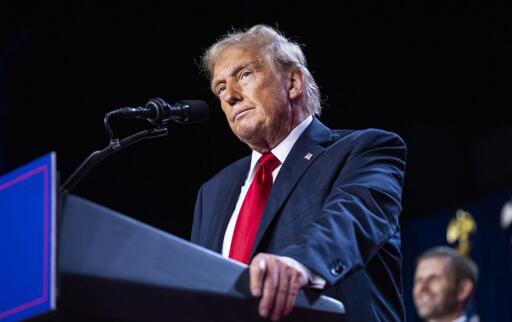Summary
Trump’s popular vote share has fallen below 50% to 49.94%, with Kamala Harris at 48.26%, narrowing his margin of victory.
Trump’s share of the popular vote is lower than Biden’s in 2020 (51.3%), Obama’s in 2012 (51.1%) and 2008 (52.9%), George W. Bush’s in 2004 (50.7%), George H.W. Bush’s in 1988 (53.2%), Reagan’s in 1984 (58.8%) and 1980 (50.7%), and Carter’s in 1976 (50.1%).
The 2024 election results highlight Trump’s narrow victory and the need for Democrats to address their mistakes and build a diverse working-class coalition.
The numbers also give Democrats a reason to push back on Trump’s mandate claims, noting most Americans did not vote for him.



You asked me an “or” question.
yeah, and it was the wrong answer.
Your question doesn’t make any sense, but I was being polite.
The scenario described is illustrating how lobsided small states’ electoral votes are. With 22% of the popular vote a candidate can with the electoral vote. Their opponent gets the other 78% of the popular vote.
It’s always an air-quotes “win” of the popular vote in America because we don’t use the popular vote to determine the winner.
The video is short. I’ve spent longer talking about it than the runtime of it. Just go watch it if you want the content explained.
i believe in the original comment, i was referring to the popular vote, you could surmise i was talking about the electoral vote if you thought i was somehow converting elector votes into percentage points. But that would be weird.
iirc my original statement was that you need a certain minimum percent of the votes to officially win the popular vote, irrelevant to the electoral vote.
It seems like you’re abstracting winning the popular vote, to winning the election, which are two vastly different concepts, as is winning the electoral vote.
I’m literally not doing that, just watch the video if you’re confused. You can win over 50% of the electoral vote with as little as 22% of the popular vote by winning the smallest states first because they have proportionally more votes. I fear I can’t make this simpler for you to understand. The video is like five minutes.
i dont ever recall mentioning the electoral vote, but you do you boo
interesting, don’t see anything about winning the popular presidential election here
I wasn’t contradicting you. I was sharing a (not so) fun fact.